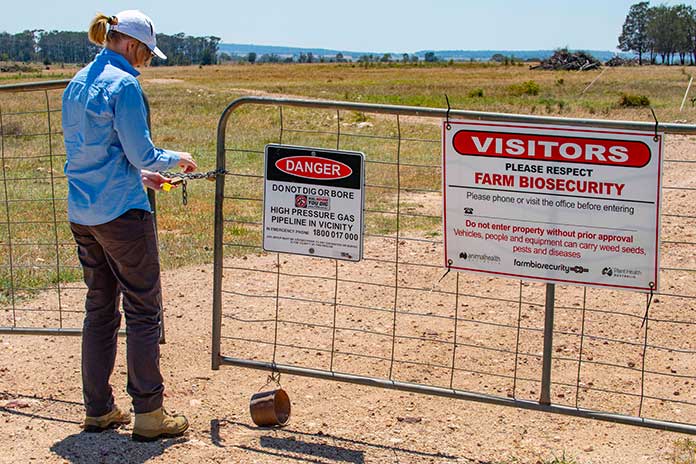



Article by: Hari Yellina
The nation’s biosecurity could be consistently supported by the import industry within a year, the Agriculture Minister said, defending his government’s biosecurity budget against “sideline opponents who don’t grasp the science.” The agriculture industry claims that the nation’s biosecurity funding is insufficient when compared to the cost of an outbreak. It has increased exponentially in the past two years. David Littleproud and the government have been under growing pressure about the nation’s biosecurity financing, which the agriculture industry claims is insufficient compared to the cost of an outbreak, which has increased exponentially in the past two years.
Mr Littleproud, on the other hand, claimed that the Inspector-General of Biosecurity had told him that biosecurity funding was adequate for the time being, and that he would not be browbeaten into spending money just to spend money. Mr Littleproud stated, “Any choice we make on biosecurity should not be based on emotion or from the sidelines – it should be based on science.” “No one who asks for additional money knows what they want to spend it on since they lack the scientific knowledge.”
Tony Mahar, the chief executive of the National Farmers Federation, said his organisation met regularly with the same departmental staff and scientists who advised the Agriculture Minister, including DAWE biosecurity deputy secretary Andrew Tongue and Chief Veterinary Officer Mark Schipp, and that NFF was fully aware of the risk. Mr. Mahar also refuted Mr. Littleproud’s suggestion that the agriculture industry was requesting funds without a plan for how to spend them.
“What we’re looking for is a long-term funding mechanism to support biosecurity,” Mr Mahar added. Due to worries about the impact of a pandemic on importing enterprises, the government cancelled its proposed importer charge, which would have raised $120 million per year for biosecurity. Importers would have been charged $10 per 20-foot container and $1 per tonne for non-containerized commodities imported. Mr Littleproud disclosed that the government has abandoned the proposed fee in favour of a cost-recovery scheme, which he hopes to have “up and running by the end of the year.” He said, “We’re almost done with the roundtables and consultations, and we’ve finally gotten the [import] industry to understand the risks.”
“They recognise that we need to proceed in this direction because by the end of the decade, we’ll have gone from roughly 5 million to around 8.5 million containers.” “Different importers will pay different prices, and it will be determined by the service we deliver.” Mr Littleproud believes that the cost-recovery scheme would be more transparent than a charge because it would show importers “what they’re paying for.” Mr Mahar agreed that imposing a cost-recovery model on importers rather than primary producers was a step in the right direction, but he required more information before making a final decision.